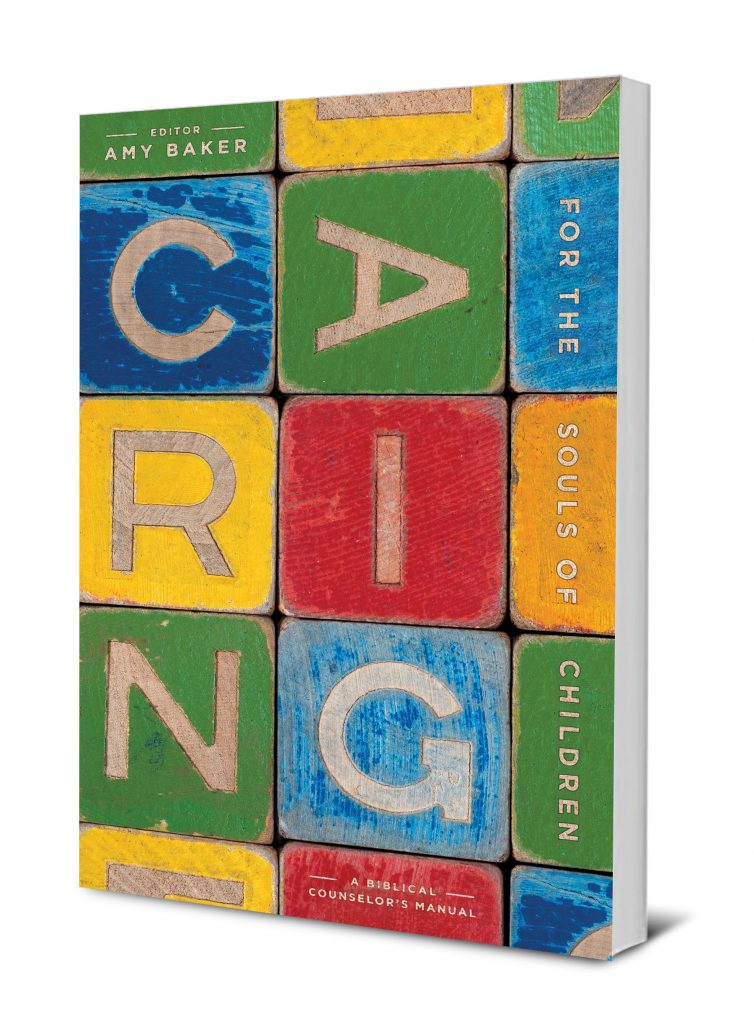You’ve been asked by your senior pastor to counsel an eight-year-old child. You don’t usually directly counsel children this young; you usually counsel parents and equip them to come alongside their young children to provide the hope and help the child needs.
However, in this situation, based on other conversations with the parents, your pastor has concluded that offering to counsel the parents about their child’s struggles will simply result in the parents searching out a counseling agency that will work directly with their child. The parents are very willing to be involved as participants in counseling, but they would also like their eight-year-old daughter Kylee to be an active participant.
You are aware of the amazing gospel opportunity present in this situation, but you feel way out of your league. Where do you start?
Let me share seven key elements that will give you principles for structuring your counseling sessions with children. Consider them a backbone to use for support as you proceed. It may or may not surprise you to learn this backbone is basically the same as what we would use for counseling adults.
The means of hope and salvation for a child are the same as for an adult—Jesus Christ. In light of this core reality, our fundamental message in counseling doesn’t change when we address children. The principal difference between counseling a child versus an adult is making sure our approach and language are accessible and easily digestible by a child.
Show Love and Begin to Build a Relationship
Someone has said that people don’t care how much you know until they know how much you care. While this observation isn’t universally true, I think most of us find that we take instruction from and respond better to people we believe care about us.
Look for opportunities to show that you want to build a relationship with the child even before you get to the counseling office. For example, when you first meet eight-year-old Kylee, you may want to kneel down to introduce yourself so you are looking at Kylee at her eye level as you say hello. Otherwise, you may tower over her and seem intimidating (kneeling, rather than bending, makes one less imposing).
For children (as with many adults), walking into unknown situations can produce anxiety. When children come for counseling, they may have no idea what to expect. They may have questions about counseling that no one has answered. Show love to the children by explaining what will happen in counseling and answering their questions.
As you seek to show love and build a relationship with children you counsel, remember you are asking them to communicate some of the most difficult and troubling aspects of their lives to you.
Gather Relevant Data
Gathering relevant data means asking appropriate questions and listening carefully to understand what is happening in the child’s life and heart. Often data gathering begins before a first meeting. At our counseling center, we ask the parents (and the child, if possible) to give us some preliminary data.
Even if I am aware of how the child is struggling prior to our first meeting, I don’t generally start out talking about the hard part of the child’s life. In my counseling, I usually try to begin with easier questions (some of which I’ll already know the answer to based on intake forms). I like to learn where the child lives, who lives with her (and the relationships of each of these individuals to the child—mother, stepdad, biological brother, stepsister, etc.), how old her siblings are, whether she has pets, what grade she is in, where she goes to school, if she is a good student, what she likes best about school, what she likes least about school, or what she likes to do when she’s not in school.
As the children begin to feel more at ease with you and the counseling setting, you may begin to transition into questions that give you a better understanding of the hard parts in their lives.
Evaluate the Problem Biblically
As I begin to get to know the child, my job will be to interpretwhat I’m learning using the lens of the Word of God. I wantto learn what is going on in the child’s heart because Proverbs4:23 reminds us that the heart is the wellspring of our life—it’s our control center.
Initially the child may see the problem only as something outside of her. While it is entirely appropriate to learn what the external pressures are and to suggest ways to remove or lessen the impact of these pressures, we are not providing biblical counseling if this is the sum of our advice.
As biblical counselors we want to skillfully gather relevant data so we can accurately evaluate what is going on in the heart. Evaluating the problem biblically puts us in a stronger position to offer God’s promises of comfort, freedom from guilt, forgiveness, release from shame, peace that transcends all understanding, and, most importantly, a Savior, King, and Redeemer.
Share Biblical Hope
In all of our counseling sessions we want to share biblical hope. Currently, Kylee doesn’t have a hope that is big enough to get her through the third grade. Yet God offers her eternal hope, a hope so robust that it will not dry up and disappear when our suffering increases. As we share biblical hope, we have the privilege of leading Kylee to the Father of all compassion who sent his Son to rescue us from despair and give us a living hope that will never disappoint.
The raw pain of suffering can easily blind us to any comfort or encouragement. The first thing Kaylee may need to learn is to tell God what is happening and how hard it is. As she does this, she will take a first step in clinging to the One who, unlike her friends, will never abandon her, will carry her sorrow, and will never show disdain for her.
Provide Biblical Instruction
As we learn the struggles and suffering experienced by the children we counsel, this should stir up compassion in us.
One of the ways we demonstrate our compassion is to provide biblical instruction and help children to see Jesus. In Mark 6:34 we see Jesus himself responding to the helplessness and spiritual hunger of the crowds around him by taking time to teach them. We’re told, “When Jesus landed and saw a large crowd, he had compassion on them, because they were like sheep without a shepherd. So he began teaching them many things” (NIV, emphasis mine).
This ties in directly to our goal for counseling. We want to use God’s Word to lovingly help children we counsel become individuals who find God to be exceedingly magnificent, trustworthy, and good, and, as a result, live with the desire to be a more and more accurate image of his beauty by loving him and others. Although God’s beauty may seem obvious to you, it may not be obvious to the child you counsel. The child may have all kinds of misperceptions about God.
As you gather relevant data, you’ll want to learn the child’s understanding of God. Maybe the child doesn’t know God is good. Perhaps he or she has formed a picture of God as angry and eager to punish any disobedience. Perhaps the child has been threatened with God’s wrath in order to keep him or her in line.
Assign Practical Homework
As we provide biblical instruction, we want to help the children we counsel practice these principles so they can be doers of the Word, not just hearers (James 1:22). Giving assignments at the end of the session for the children to practice during the week encourages them to see how these principles bear out in their real-life concerns.
As a general rule, I like to give children a “think” and “do” portion of each assignment to help solidify the concept
we are working on. I use “think” assignments to review and expand what they are learning in the session and to help children evaluate which desires are influencing them. I use “do” assignments to help the children put the instruction into practice or to gather data.
Involve the Parents
My strong preference when counseling children is to make the parents part of the counseling session. If parents aren’t part of the whole session, consider asking them to be present for the last ten minutes. Prepare the children for this and ask them if they would like to tell their parents what you have discussed so far. Ask the parents if they have any questions. It is important for the children to be present for this conversation so they hear everything you and their parents say. It also helps the parents set the example of how to productively communicate during conflict.
Of course, there may be times when the parents will need counsel themselves that is not about the children. In such situations, it would be appropriate to explain to the children that the reason for the meeting is for the parents to get help about a problem they have; the meeting is not to discuss the child behind his back.
The ideal outcome at the conclusion of counseling is that the child and the parents have taken steps toward finding God to be exceedingly magnificent, trustworthy, and good, and, as a result, they are living with the desire to be a more accurate image of his beauty by loving him and others, using the Word of God as their teacher.
Excerpt adapted from Caring for the Souls of Children: A Biblical Counselor’s Manual © 2020 Amy Baker. May not be reproduced without prior written permission.
CARING FOR THE SOULS OF CHILDREN: A BIBLICAL COUNSELOR’S MANUAL
Caring for the Souls of Children equips counselors, parents, pastors, and other helpers who love children, to boldly trust in the sufficiency of Scripture for counseling. This in-depth resource begins with an overview of foundational principles for counseling children and addresses a different counseling topic in each subsequent chapter.






